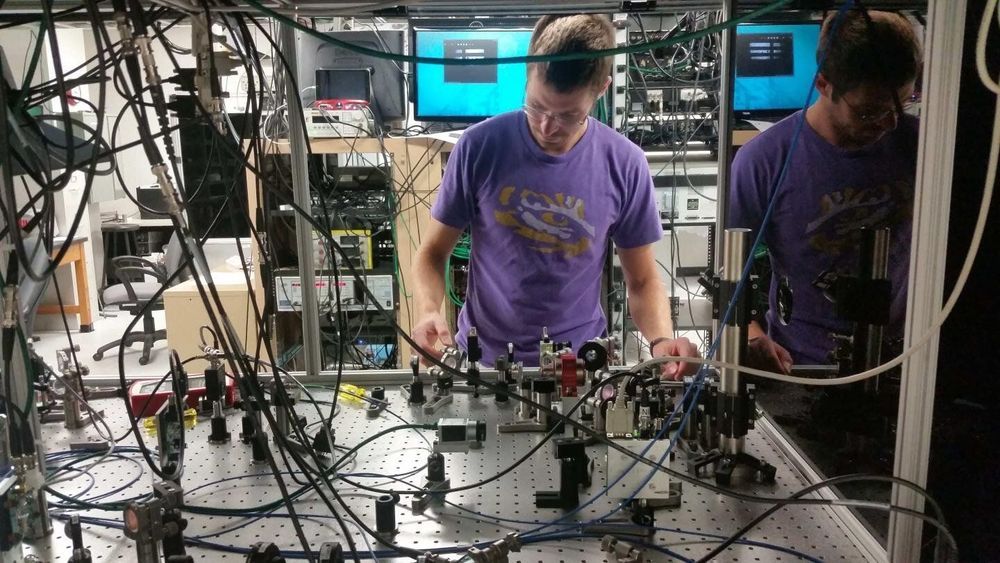Gravitational wave detectors have opened a new window to the universe by measuring the ripples in spacetime produced by colliding black holes and neutron stars, but they are ultimately limited by quantum fluctuations induced by light reflecting off of mirrors. LSU Ph.D. physics alumnus Jonathan Cripe and his team of LSU researchers have conducted a new experiment with scientists from Caltech and Thorlabs to explore a way to cancel this quantum backaction and improve detector sensitivity.
In a new paper in Physical Review X, the investigators present a method for removing quantum backaction in a simplified system using a mirror the size of a human hair and show the motion of the mirror is reduced in agreement with theoretical predictions. The research was supported by the National Science Foundation.
Despite using 40-kilogram mirrors for detecting passing gravitational waves, quantum fluctuations of light disturb the position of the mirrors when the light is reflected. As gravitational wave detectors continue to grow more sensitive with incremental upgrades, this quantum backaction will become a fundamental limit to the detectors’ sensitivity, hampering their ability to extract astrophysical information from gravitational waves.









Comments are closed.